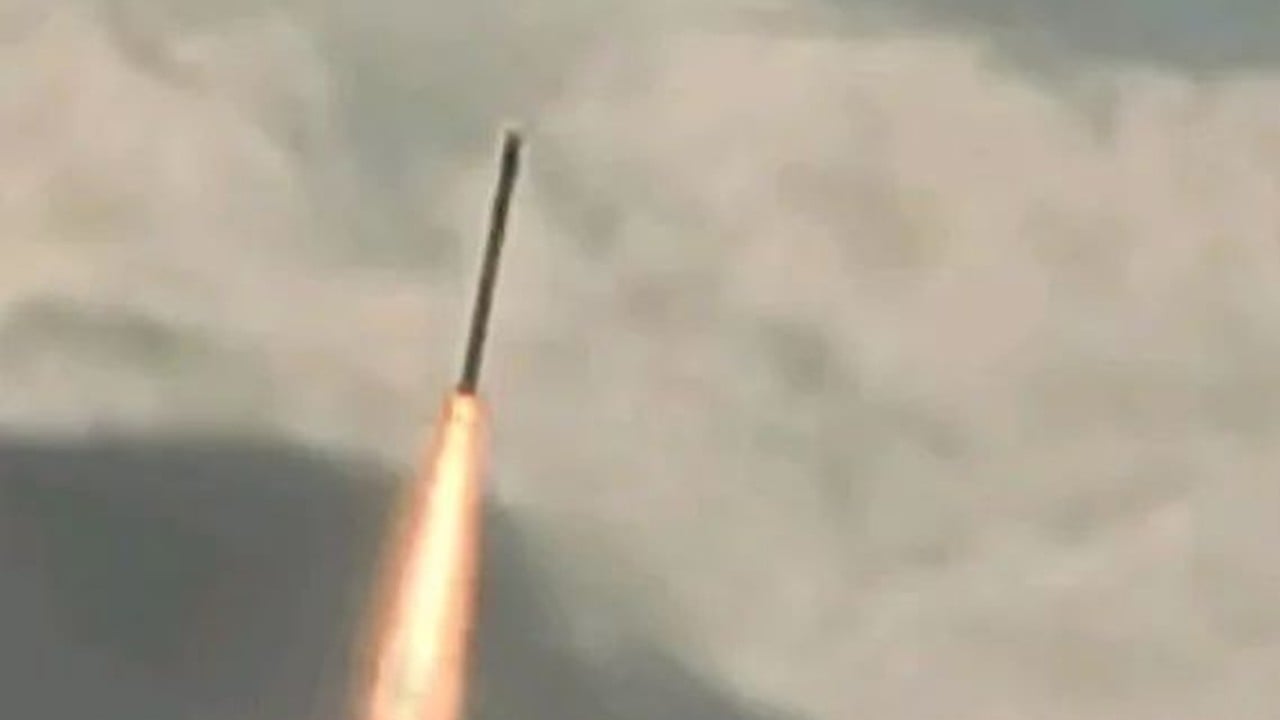A Chinese rocket start-up has suffered another launch failure, resulting in the loss of three satellites as part of a commercial constellation being assembled for global weather forecasting and earthquake prediction.
Hyperbola-1 – a 24-metre (79ft) high solid-fuel rocket produced by iSpace – lifted off on Thursday from the Jiuquan Satellite Launch Centre in northwestern China’s Gobi Desert at 7.40am Beijing time, the company said in a post on its official WeChat account.
“The rocket’s first, second and third stages flew normally, but the fourth stage suffered an anomaly and the launch mission ended in failure,” the company said, adding that the specific reasons for the failure would be announced as soon as possible after detailed investigations.
The relatively small Hyperbola-1, which can deliver a 300kg (661 pound) payload into a 500km (311 mile) sun-synchronous orbit, was carrying Yunyao-1 weather satellites 15, 16 and 17 for the Tianjin-based Yunyao Aerospace Technology company. The satellites did not reach orbit.
Yunyao Aerospace Technology had planned to launch nearly 40 satellites this year to complete its 90-satellite Yunyao-1 constellation by next year.
“Our constellation will break a foreign monopoly and provide high-resolution, high-precision, and all-scale weather monitoring and earthquake early warning services to Belt and Road Initiative countries,” a Yunyao Aerospace representative told Tianjin Daily in January.
In 2019, iSpace became the first private rocket company in China to reach Earth orbit with Hyperbola-1. But since then, the rocket has failed on three consecutive occasions. Problems have ranged from a first-stage steering fin being damaged by falling insulation foam, to a fuel leak in the altitude control system of the second stage.
Thursday’s launch marked Hyperbola-1’s fourth failure out of seven orbital launch attempts – an exceptionally high failure rate among rocket start-ups in China.
The company has also been working on a medium-lift, reusable rocket known as Hyperbola-3, which burns methane and liquid oxygen. In 2020, iSpace raised US$173 million in series B-round fundraising to develop the rocket.
In November, iSpace conducted a successful vertical take-off-vertical landing experiment with a Hyperbola-3 test rocket at the Jiuquan Satellite Launch Centre. The rocket reached an altitude of 178 metres during a 51-second flight, before landing safely.
The company on Thursday said it extended “deepest apologies to all friends who have continuously supported us. We are acutely aware of the importance of your expectations and trust”.
“We have promptly initiated a thorough and meticulous review process, with a rigorous, prudent and coordinated approach to ensure a comprehensive analysis of the issues, and lay a solid foundation for the success of our future missions,” it said on WeChat.


